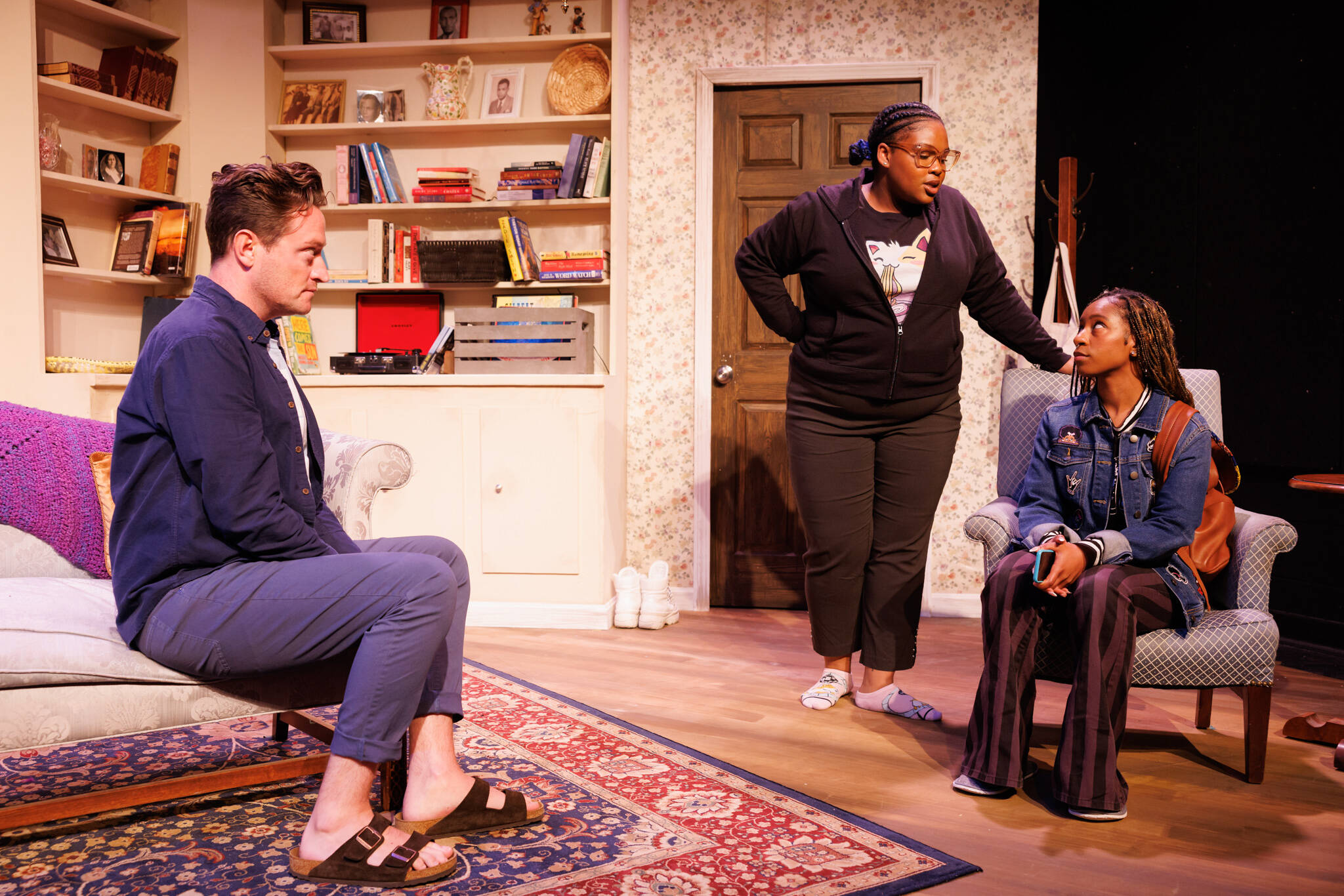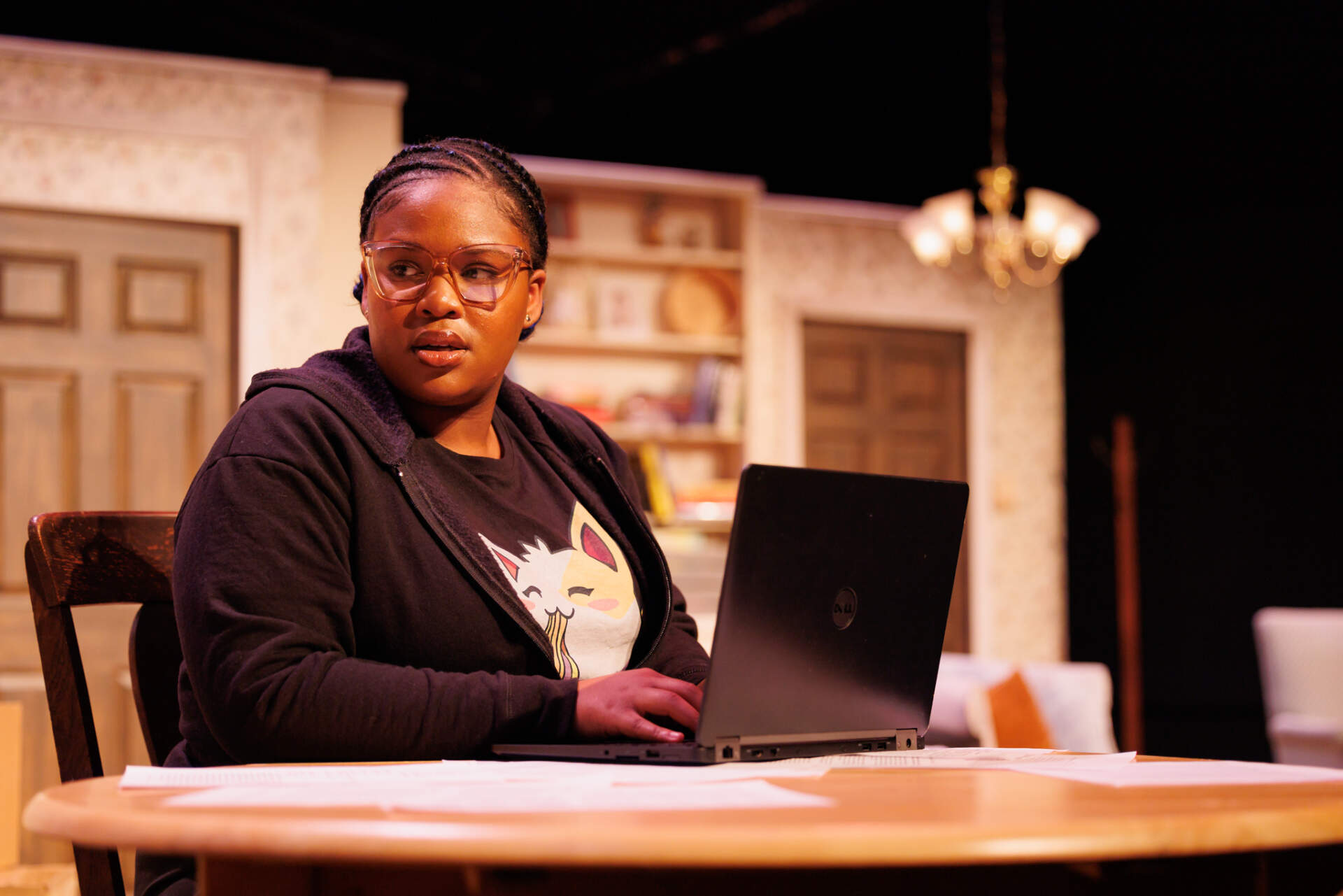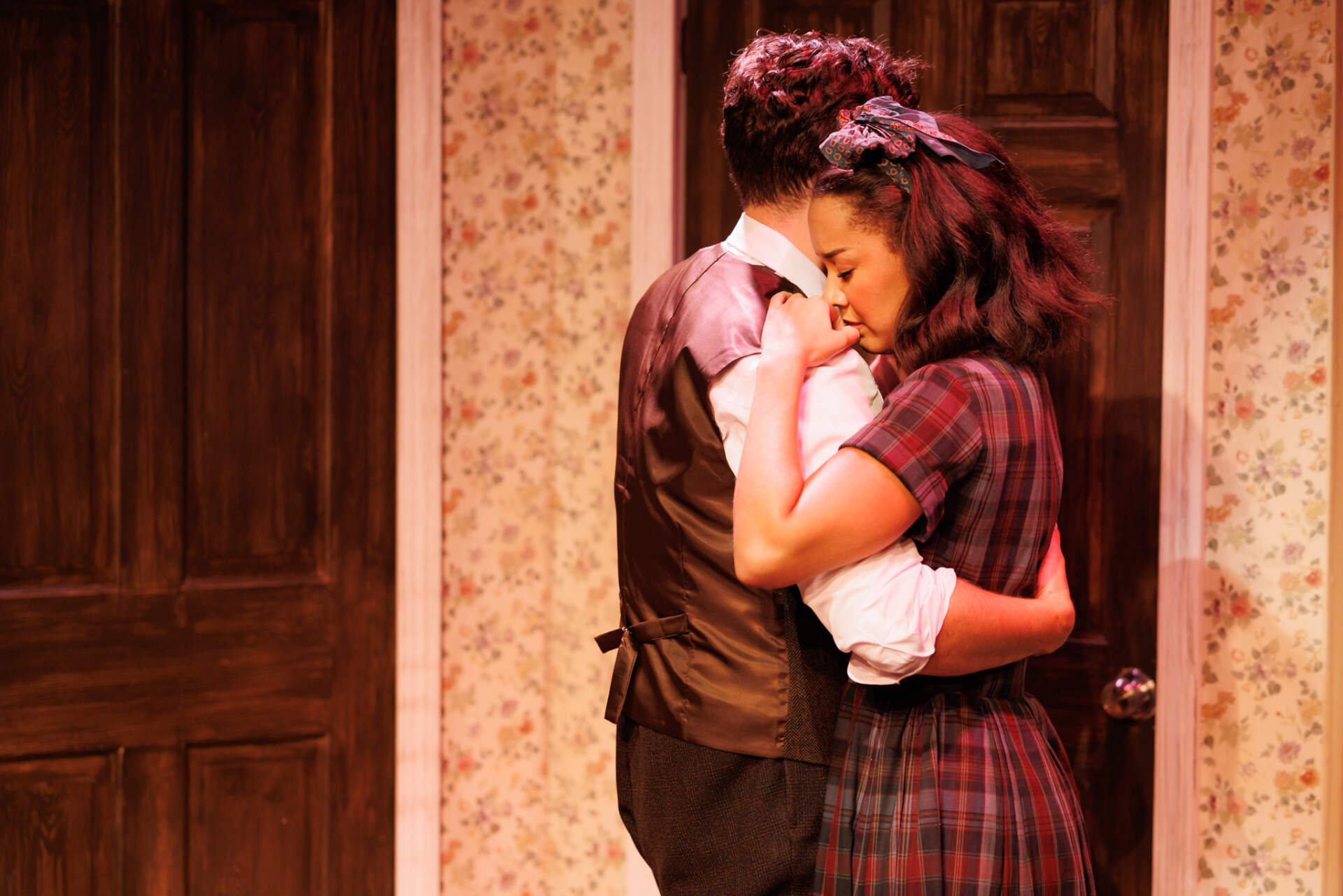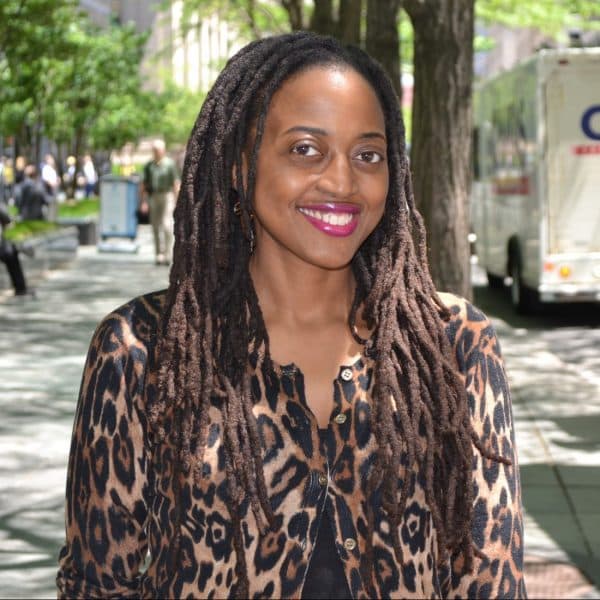Advertisement
At New Rep, 'Diaspora!' is an exploration of identity and familial love

Time travel and history are central to screenwriter, playwright and journalist Phaedra Michelle Scott’s work.
Every single thing Scott writes “has some sort of travel element to it because I’m constantly inspired by it,” she explains. She went to college to study history and is intrigued by the historiography of learning and how it evolves. Through all forms of her writing, she aims to tell stories that connect people and “capture the emotional history and spirit of a time,” she says.
Those elements are at the core in her new play “Diaspora!” about a writer on the hunt for a long-lost grandparent. Not to mention the historical events such as the presidency of Donald Trump, the riots after George Floyd’s killing, and COVID that happened while Scott developed the play during SpeakEasy Stage’s Boston Project Playwright program.
In “Diaspora!,” at New Repertory Theatre now through Oct. 15, Sunny — who lives in an apartment between Mission Hill and Roxbury — is writing a book about her family through the lens of history. Soon, she learns that her grandfather is white, which shakes up everything she thinks about herself and puts a wedge between her and her niece Janae. As she delves further into her family’s background, she learns how to “stand in her identity and not be ashamed of it,” Scott explains. So much of it “is [about] living with her heart open going forward,” she adds.
The narrative explores identity, interracial relationships and familial love. Scott and the show’s director, Pascale Florestal (who worked with Scott at the Huntington and had directed a few readings of the play during its development), talk about what shaped the play during development and what they hope audiences learn from it.
Note: This interview has been edited and condensed for clarity and length.
What are some of the ways the play has changed from earlier iterations?
Pascale Florestal: I think much of the world has changed; so many things about the play had to change. When we were in the development of the play, Trump had just been elected as president. I think many people of color, many queer people, were just so angry at the world. Now, after going through that, a pandemic and all of these things, I think we found more of the joy that I believe is what brought people like me and Phaedra to the table around this play and why we loved it so much, and the characters and their joy for their lives. I think we found more of the humor and how we can see the world in a better way because I think it’s very easy to fall into despair, especially during that time. I think it’s been so beneficial to the play and Phaedra’s development of it to have this time for it to grow.
What’s the ethos or driving force behind your work?
Phaedra Scott: I love telling stories that challenge what we think about identity and ourselves. So whenever I approach work, it’s centered on Black women and Black American identity. I’m so interested in what it means to not understand where your ancestors are from, especially as a diasporic person. So much of this is trying to grapple with the fact that I had no idea where my grandparents came from. I didn’t even know their names. Maybe I was a bit jealous of my peers who did know this information, but at the same time, why should I feel bad that I didn’t know these things when I had an opportunity to create something? I believe there’s so much culture about being Black American. I’m sick of the idea that America only belongs to one type of person. So I’m like, no, it’s mine. It’s messy, complicated, beautiful, awesome and transformative and those are all the things that exist at the same time that are contradictory, but important for me to share, and say these are the milestones of our culture as Black Americans, and let’s keep pushing it. Let’s keep creating it.

Can you tell me how Sunny grapples with the information she learns about her grandfather’s ancestry? How does she take it?
PS: When researching this show, I read that almost 25% of Black Americans have white ancestry. And so much of that is based on, of course, slavery, the discrimination and the terrorizing of Black bodies. I was also interested in challenging that. What would happen if it was something else? What does interracial love look like in a positive way? ...
I was just interested in the beauty of what it means to have interracial relationships, and interracial friendships. And part of that is also inspired by my own life. I’m grateful that my world is very large and I’ve got so many friends who don’t look like me and don’t come from the same background. I think that’s made everything that I’ve done so much richer. And so that’s something I was also interested in capturing: how can differences make it all come together but also challenge each other and keep each other accountable?
The story is also a love letter to interracial relationships. That’s so important to me. It was like a guiding star in creating this play mainly because it’s like it’s just love, not a diminished form of it, and not necessarily a better form of it.
Is there a scene from the play that feels most poignant?
PF: There’s this beautiful scene where two characters talk about what it means to be in an interracial relationship and not to feel validated in your otherness because you’re with a white person. When we were developing the play that was such a big conversation because as someone who is in an interracial relationship, I’ve had these same thoughts in my head, but I’ve never talked about it with people until we did the play. And I did a little bit of therapy. But you know, it was so important for me to talk about this struggle, humanize it, validate it, and make it feel like it’s okay, not that there’s something wrong with you. So that’s my favorite scene.

What do you hope audiences learn or feel about the play?
PF: There’s a lot of memory in this play, which is something I’ve truly loved. We’ve found a beautiful way to evoke [it] in the staging, the scenic, sound and lighting design. So I’m excited for that. And I think, with memory, I want the audience to remember we have come far, but we have a long way to go. I was listening to NPR (I think) the other day in the car, and they were talking about Loving v. Virginia, and I’m constantly reminded that that wasn’t that long ago, these moments in time that have changed and moved us through so much. ... With my work, I often hope to speak to what’s happening today and how there are still possibilities for us to go back.
Any final thoughts you want to share?
PS: Boston is a city that means a lot to me. It’s where I met my husband, [and it] is where I feel like I understood who I was becoming. And so much of this place is so important in this play, so I’m glad to share it.
PF: The play is part rom-com, part activist and part love. It is a love story, too, not just about romance but love of family, friendship, kinship and community.
New Repertory Theatre’s “Diaspora!” runs through Oct. 15.
